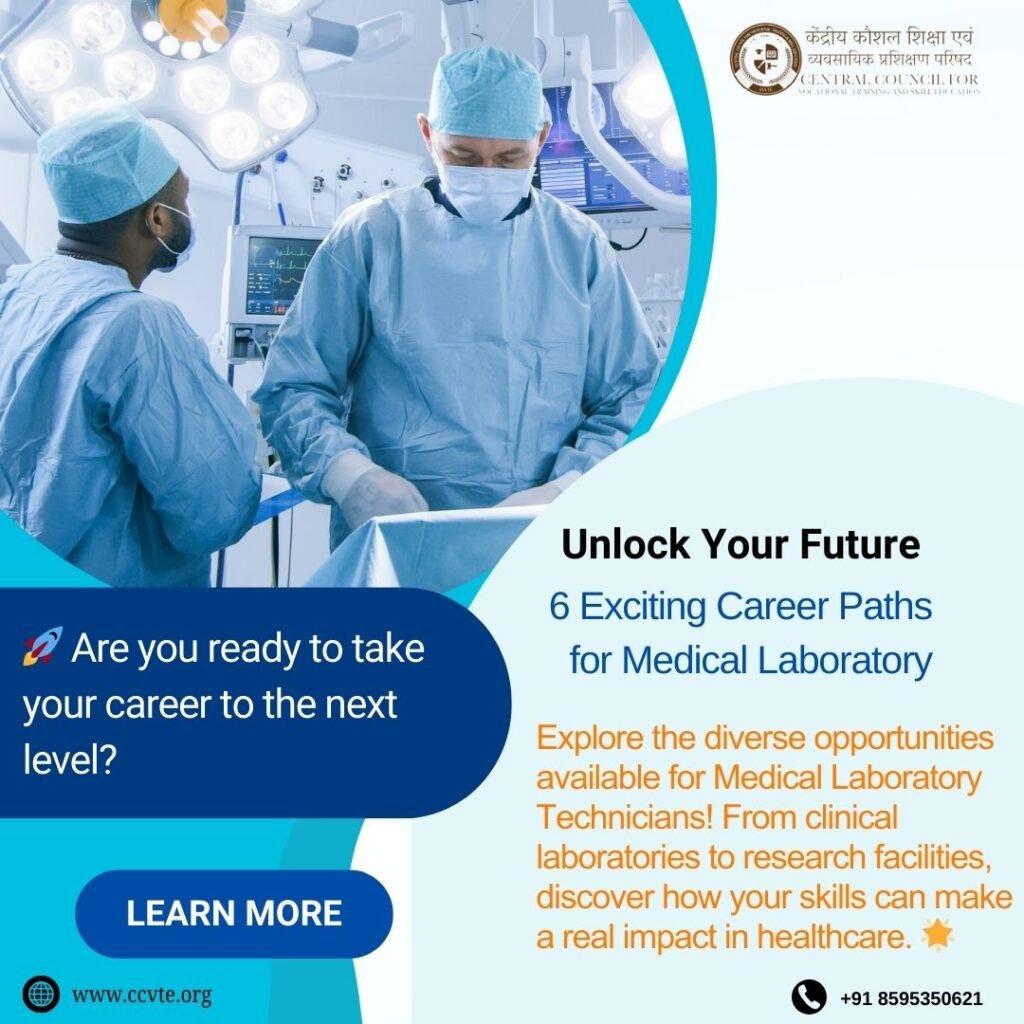Medical laboratory technologists perform an important part in the healthcare system. They are responsible for conducting tests that help diagnose diseases, monitor health, and guide treatment decisions. With advancements in medical technology and a growing emphasis on accurate diagnostics, the demand for skilled technicians continues to rise. If you’re considering a career in this field, there are numerous paths you can take.
Getting Started: Medical Laboratory Technician Courses
To embark on a career as a medical laboratory technician, it’s essential to complete the necessary education and training. Medical laboratory technician courses typically include a blend of classroom instruction and hands-on laboratory experience. You’ll study key areas such as microbiology, clinical chemistry, hematology, and blood banking. These courses not only equip you with theoretical knowledge but also provide practical skills essential for success in the field.
Institutions like CCVTE offer comprehensive programs designed to prepare students for a range of career opportunities. By completing these courses, you can gain certifications that enhance your employability and credibility in the healthcare sector.
- Clinical Laboratory Technician
One of the most common paths for medical laboratory technicians is becoming a clinical laboratory technician. In this role, you’ll analyze various bodily fluids, such as blood and urine, to assist healthcare providers in diagnosing and treating illnesses. Your daily tasks may involve running tests, maintaining equipment, and ensuring the accuracy of results.
Clinical laboratory technicians work in hospitals, diagnostic laboratories, and private practices. This position requires strong analytical skills and attention to detail, as even minor errors can lead to incorrect diagnoses. With experience, you may advance to supervisory or managerial roles, overseeing laboratory operations and staff.
- Blood Bank Technician
Blood bank technicians specialize in the collection, testing, and processing of blood donations. They play a critical role in ensuring the safety and compatibility of blood for transfusions. Your responsibilities may include performing serological tests, typing and cross-matching blood, and maintaining inventory.
Working in a blood bank requires precision and a thorough understanding of blood-related tests. Additionally, you’ll need to adhere to strict safety protocols to prevent contamination and ensure donor safety. This rewarding career path allows you to directly impact patients in need of life-saving transfusions.
- Cytotechnologist
Cytotechnologists focus on examining cells under a microscope to identify abnormalities, such as cancerous cells. This specialized field requires additional training beyond standard medical laboratory technician courses. Cytotechnologists work closely with pathologists, providing essential information for accurate diagnoses.
Your work will involve preparing and staining slides, analyzing cell samples, and documenting findings. Attention to detail and a strong understanding of cellular structure are vital for success in this role. With experience, you may also take on roles in research or teaching, further advancing your career.
- Histotechnologist
Histotechnologists prepare tissue samples for examination by pathologists. They are responsible for processing, embedding, and sectioning tissues, as well as staining them for diagnostic purposes. This role is critical in identifying diseases and abnormalities at the tissue level.
Histotechnologists often work in hospitals, research laboratories, or academic institutions. A background in histology, which may be included in medical laboratory technician courses, is beneficial. The role requires meticulousness, as the accuracy of tissue preparation directly affects diagnostic outcomes.
- Forensic Laboratory Technician
Forensic laboratory technicians assist law enforcement agencies by analyzing evidence collected from crime scenes. They work with a variety of samples, including blood, hair, and other biological materials. This exciting career combines science with investigative work, providing opportunities to contribute to the justice system.
In this role, you will use various analytical techniques to determine the origin of samples and assist in criminal investigations. A strong understanding of legal protocols and attention to detail are essential. Forensic science is a dynamic field, often requiring ongoing education to stay updated with new technologies and methods.
- Molecular Diagnostic Technician
Molecular diagnostic technicians specialize in genetic testing and analysis. This field has grown rapidly with advancements in technology and a shift towards precision medicine. In this role, you will analyze DNA and RNA to diagnose genetic disorders and infectious diseases.
Molecular diagnostic technicians work in laboratories, often collaborating with genetic counselors and physicians. Knowledge of molecular biology techniques is essential, and specialized training is usually required. This path not only offers exciting challenges but also the opportunity to contribute to groundbreaking advancements in medicine.
Conclusion
The field of medical laboratory technology is diverse and offers numerous career paths. Each role requires a strong foundation in science and a commitment to accuracy and detail. By pursuing medical laboratory technician courses, you’ll equip yourself with the skills necessary for success in various specialties.
From clinical laboratory technicians to molecular diagnostic technicians, each career path offers unique challenges and rewards. As healthcare continues to evolve, the importance of skilled laboratory technicians will only grow. Take the first step in your journey, and explore the many opportunities available in this essential field. Your contribution could make a significant difference in patient care and the healthcare system as a whole.
















































